BJP’s potential third term would fuel India’s global ambitions
As the Indian general election progresses, Asia Society Policy Institute assistant director Rishi Gupta examines the three major political parties’ foreign policies, in particular their positions towards India’s neighbourhood, the US and China.
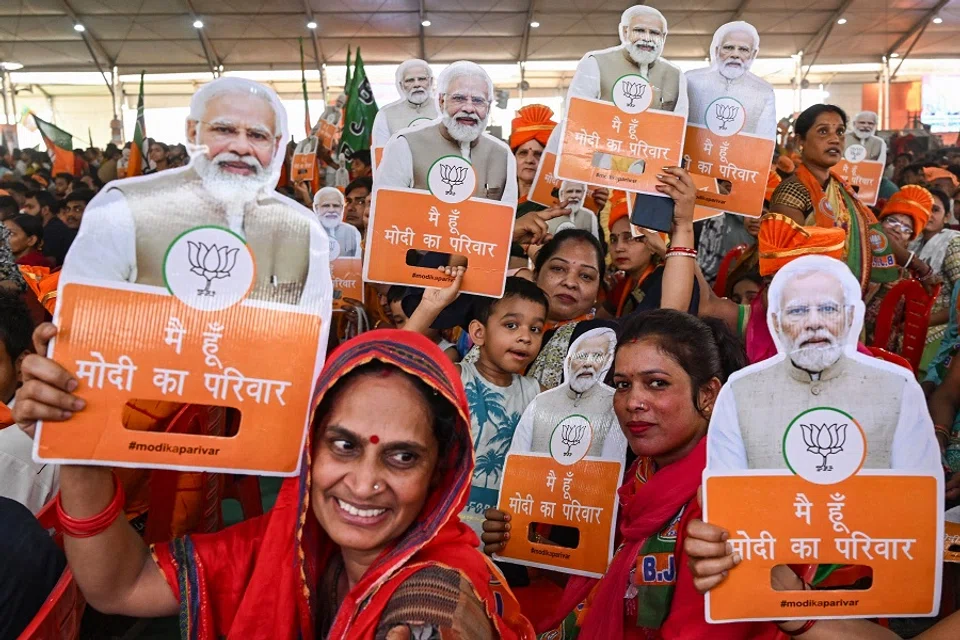
India, the world’s most populated country with an estimated population of 1.44 billion, is voting to elect a new government and prime minister. Since India gained independence from Britain in 1947, this is the 18th time that people are exercising their adult franchise to elect 543 out of the 545 members of the lower house, the Lok Sabha. The country follows a complicated parliamentary form of government and multiparty political and electoral set-up, where thousands of political parties, including regional and national parties, are wooing 969 million eligible voters in their favour.
While domestic agendas play a crucial role in national elections in India, foreign and national security issues have been of paramount importance to the Indian electorate. The leading national parties, the Bhartiya Janta Party (BJP), the Indian National Congress (Congress), and the Communist Party of India (Marxist) [CPI(M)], have released their election manifestos, providing a detailed view of their foreign policy priorities and perspectives on strengthening national security. Here is an analytical view.
India’s soft power
The BJP is seeking the third consecutive term under the leadership of Prime Minister Narendra Modi. In its election manifesto “Sankalp Patra” (committment), the BJP has highlighted its foreign policy achievements, especially in promoting India’s leadership on the world stage; as a responder during the humanitarian crisis in Turkey, Nepal, the Maldives and elsewhere; sending vaccines abroad during the Covid crisis; and popularising “brand India” in terms of India’s soft power — philosophy, Yoga and Ayurveda.
To the BJP’s credit, during Narendra Modi’s first term (2014-19), India succeeded at the United Nations in declaring 21 June as the International Day of Yoga. In terms of promoting India as the “voice of the global south”, the BJP-led government was able to project this position at the G20 summit in 2023 under its presidency with a 100% consensus-based declaration among members.
Unless the UNSC is reformed, India’s UNSC aspiration remains a question, but such promises do carry some value for the local constituents who see UNSC membership as a step towards India becoming a “Vishwaguru” (world leader)...
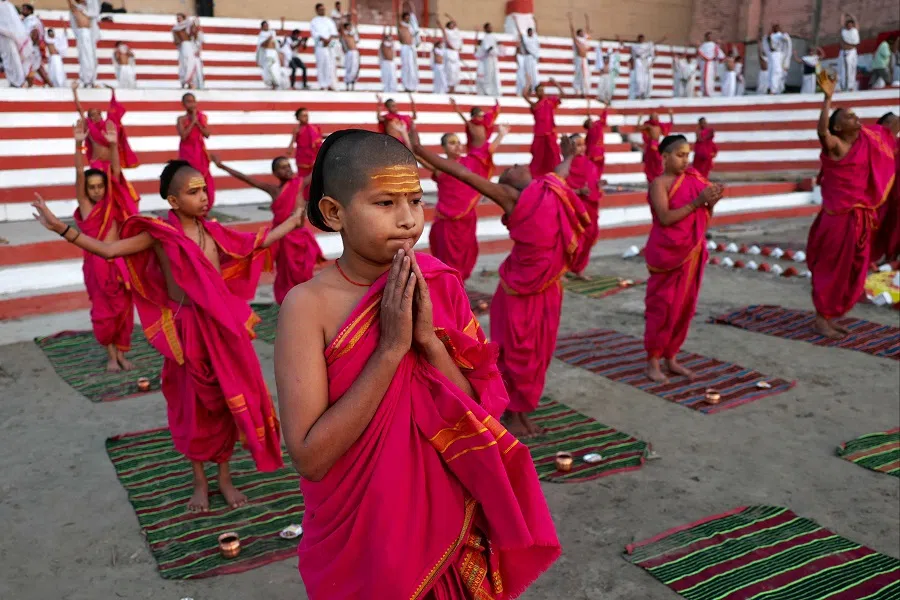
The BJP promises to continue to push for India’s permanent seat at the UN Security Council (UNSC). India has been attempting to achieve this, but arch-rival China has an apparent veto on anything that concerns reforming the council. Unless the UNSC is reformed, India’s UNSC aspiration remains a question, but such promises do carry some value for the local constituents who see UNSC membership as a step towards India becoming a “Vishwaguru” (world leader), which has been the BJP’s national commitment. Surprisingly, the Congress manifesto “Nyay Patra” (justice) and CPI(M) manifesto give a miss to discussing India’s soft power.
Dealing with a troubling neighbourhood
Geographically, as the biggest country in South Asia, India has had challenging times with its neighbours. The partition of India and the creation of Pakistan in 1947 gave birth to a permanent conflict in Kashmir between the two countries. While the dispute shadows bilateral ties and paralyses the possibilities of regional cooperation, Pakistan’s proven role as a financer, exporter of cross-border terrorism, and host of terrorists and terrorist organisations has left no hope for bettering ties.
In the past, Pakistan remained a key foreign policy challenge for the political parties. But this has changed drastically, with the BJP giving no space to ties with Pakistan in the manifesto. Prime Minister Modi, in a recent interview, said that India has no time to waste with Pakistan as Delhi’s focus is to take care of their new generations. The BJP manifesto itself makes only one passing reference to Pakistan, adding that India will accelerate the development of robust infrastructure along the India-Pakistan border.
The Congress stands in sync with the country’s long-held position, including that of the BJP, that engagement with Pakistan depends “fundamentally on its [Pakistan’s] willingness to end-cross-border terrorism”. Similarly, the CPI(M) adds that it stands for “resuming talks with Pakistan for the resolution of all outstanding issues including cross-border terrorism and the promotion of people-to-people relations, cultural and sporting events”. There is undoubtedly national unity among parties on not resuming talks with Pakistan unless Pakistan acts against the menace of terrorism.
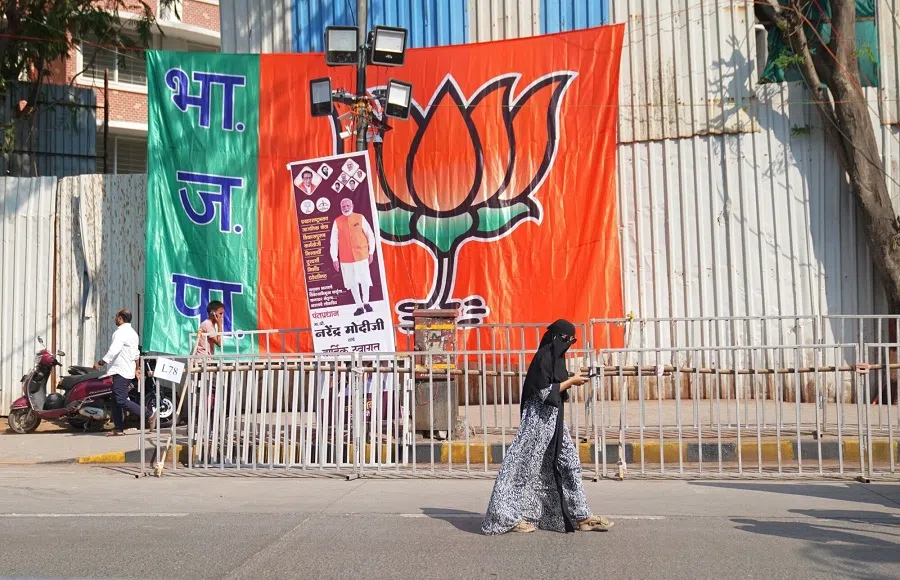
Meanwhile, on other regional neighbours, including Nepal, Bangladesh, Myanmar, Sri Lanka, and the Maldives, the BJP promises to continue with its “Neighbourhood First” policy, which has been the basis of India’s engagement with the immediate neighbourhood for the last ten years of the BJP rule. However, the Congress and CPI(M) have come down hard on the government for failing to prevent anti-India voices in Nepal, Bangladesh, Sri Lanka and the Maldives, especially given the “India Out” campaigns, in recent years, and promises to improve ties with neighbours while defending every aspect of India’s security.
Despite this, the trade aspect of their relationship starkly contrasts the border situation. Recent reports in May 2024 indicate that China has become India’s largest trading partner, with bilateral trade reaching a significant US$118.4 billion.
The looming China challenge
China emerged as the cardinal foreign and security challenge during the two terms of the BJP-led government. Today, Beijing continues to be assertive and expansionist towards India, including its claims in the state of Arunachal Pradesh. A few weeks ago, on 6 May, was the fourth anniversary of the clashes between Indian and Chinese troops at Pangong Tso in eastern Ladakh. This confrontation resulted in the tragic loss of 20 Indian soldiers on 15 June 2020.
The incident was particularly startling given the extensive diplomatic efforts undertaken by Prime Minister Modi during his first term which included numerous high-level communications, reciprocal visits, and over a dozen meetings with President Xi Jinping.
However, the border remains the pivotal factor in India-China relations, with the BJP government asserting that the “border will determine the state of the relationship” and acknowledging that “much of the future of Asia depends on how relations between India and China develop”. Despite this, the trade aspect of their relationship starkly contrasts the border situation. Recent reports in May 2024 indicate that China has become India’s largest trading partner, with bilateral trade reaching a significant US$118.4 billion.
China’s ongoing expansionist activities at the border continue to stir nationalist sentiments. However, the BJP has conspicuously omitted any mention of this issue in its manifesto, perhaps to sidestep potential political debates surrounding it. However, one reference to China in the BJP manifesto promises to “accelerate the development of robust infrastructure along the India-China border”, mirroring the approach taken with Pakistan in this regard. It conveys the BJP’s commitment to strengthen India’s border infrastructure and military capabilities to deal with the China challenge.
Conversely, the opposition accuses the BJP-led government of giving a “clean chit” to China — referring to Prime Minister Modi’s remarks at an all-party meeting amid the border clash with China in June 2020. The Congress said in their manifesto that under BJP rule, “Chinese troops continue to occupy Indian territory and deny Indian forces access to 26 out of 65 patrolling points, equivalent to an area of 2000 square km in eastern Ladakh” despite the 21 rounds of military-level talks. In addition, the Congress has, in a recent statement on 6 May added that “this sorry situation is a complete indictment of the PM’s gullibility and naiveté regarding China”.
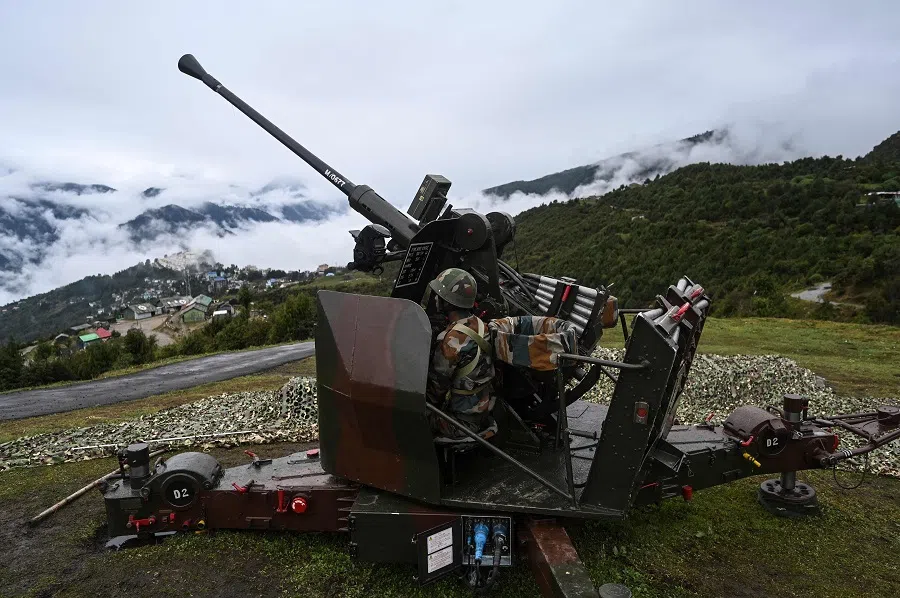
In its manifesto, the Congress promised that it would “work to restore the status quo ante on our borders with China and to ensure that areas where both armies patrolled in the past are again accessible to our soldiers. We will take the necessary steps to adjust our policy towards China until this is achieved.”
As the BJP seeks a third term, addressing the China challenge demands a multi-faceted approach.
CPI(M), on the other hand, avoided criticising the government of China and in its manifesto but put across a policy recommendation for a “negotiated settlement of the border dispute with China and promotion of all-round relations”.
As the BJP seeks a third term, addressing the China challenge demands a multi-faceted approach. Diplomatic engagement, economic self-reliance, military preparedness and regional cooperation stand as pivotal policy options. Strengthening alliances with nations sharing concerns about Chinese activities fosters a united front. At the same time, prioritising indigenous manufacturing through initiatives like “Make in India” reduces dependency on Chinese imports. Meanwhile, strengthening defence and border infrastructure ensures readiness to deter any potential aggression.
Relations with the US
Undoubtedly, Prime Minister Modi, during his two terms, has fostered a robust partnership with the US. The US stands as India’s second-largest trading partner and holds significant strategic importance, not only on a bilateral level but also regionally and globally, particularly in addressing the challenges posed by China in the Indo-Pacific region. From an enhanced defence industrial cooperation to the US-India initiative on Critical and Emerging Technology (iCET), the Logistics Exchange Memorandum of Agreement (LEMOA) and the Communications Compatibility and Security Agreement (COMCASA), as well as the 2+2 ministerial dialogue, the relationship has boomed.
However, unsavoury incidents occasionally disrupt the momentum of US-India relations. For example, the US continues to question Indian democracy, including recent comments by the US ambassador to India on the arrest of Delhi’s chief minister in an alleged corruption case. Similarly, the US investigation agencies have alleged the role of an Indian official in the reported killing of an Indian-origin American citizen. Besides, India’s oil purchase from Russia amidst sanctions following Moscow’s war on Ukraine has also affected US-India. That said, the BJP and Congress stand united in their manifestos in supporting taking ties with the US further.
India’s evolving relationship with the US signifies a significant departure from historical hesitations in engaging with crucial international issues.
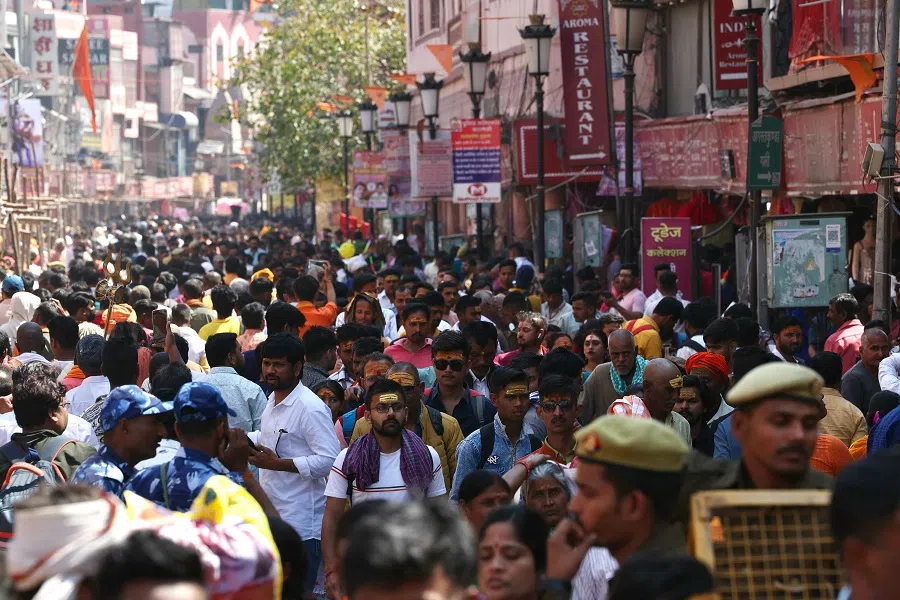
The CPI(M) is an exception in criticising the BJP-led government for abandoning India’s independent foreign policy by siding with the US in “refusing to demand an unconditional ceasefire to stop the genocidal war against the people of Palestine”. Similarly, CPI(M) questions India’s decision to participate in “active strategic and military alliances” like the Quad — the US, India, Japan, and Australia — against India’s long-held non-alignment policy.
India’s evolving relationship with the US signifies a significant departure from historical hesitations in engaging with crucial international issues. This shift includes taking stances on conflicts such as the Israel-Hamas war, participating in alliances like the Quad, diversifying away from the Russian sphere of influence, and collaborating with like-minded nations. While the CPI(M) criticises this shift as a marked departure in BJP’s foreign policy, many foreign policy experts view it as a reflection of India’s changing global power status, propelled by its economic and technological advancements.
... a potential third consecutive term for the BJP would likely translate into a more ambitious and assertive Indian presence on the world stage.
Conclusion
Over the past decade, India’s foreign and security policies have undergone significant transformations, evidenced by its diplomatic and strategic stances on various global issues, including support for Israel. At the same time, India’s ascent to the fifth economic power during the Modi administration has reshaped the BJP’s political landscape and positioned India as a pivotal player in international trade. Therefore, regardless of the outcomes of the ongoing elections, India’s foreign policy and national security are poised for further enhancement rather than any regression on global matters. Furthermore, a potential third consecutive term for the BJP would likely translate into a more ambitious and assertive Indian presence on the world stage.





